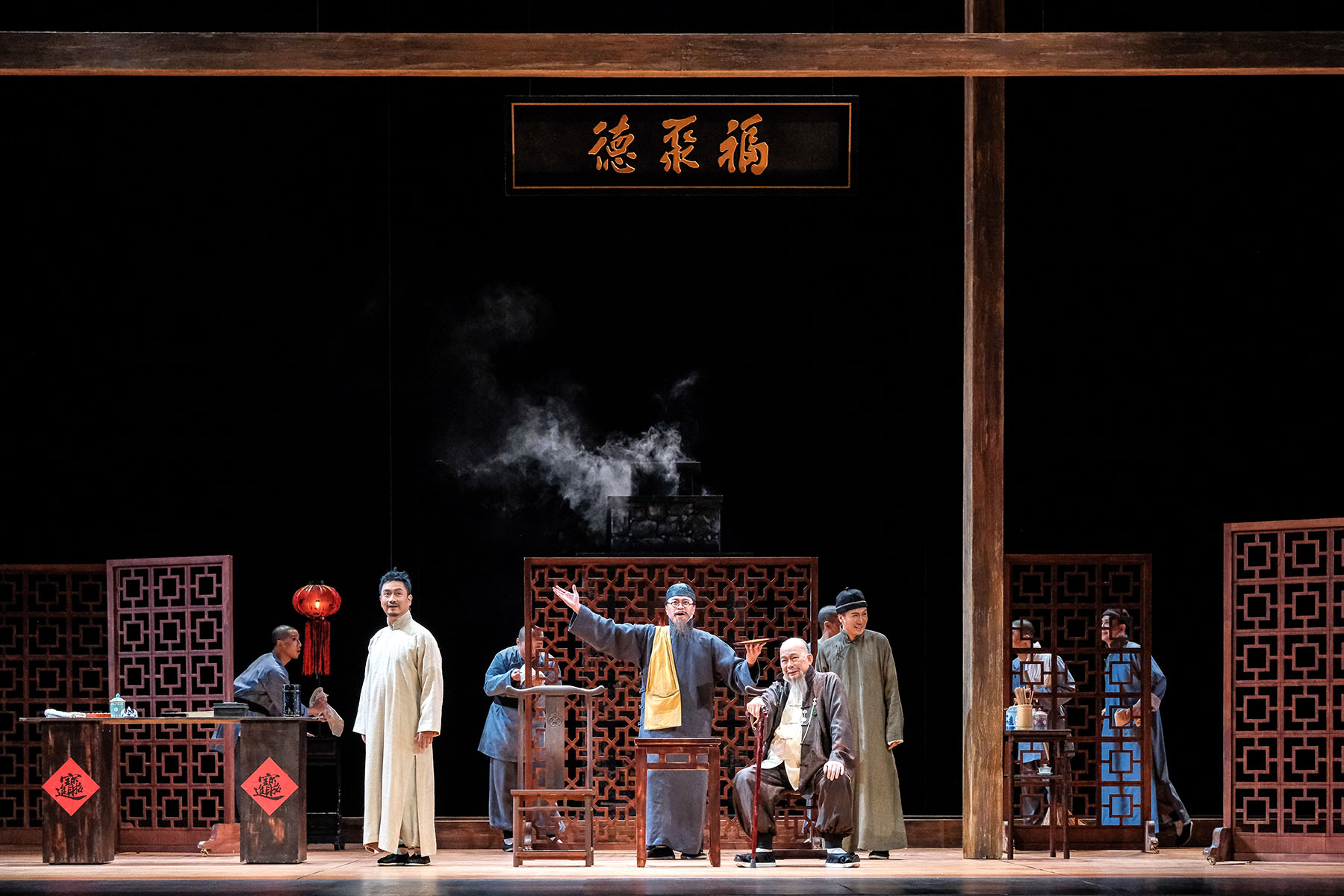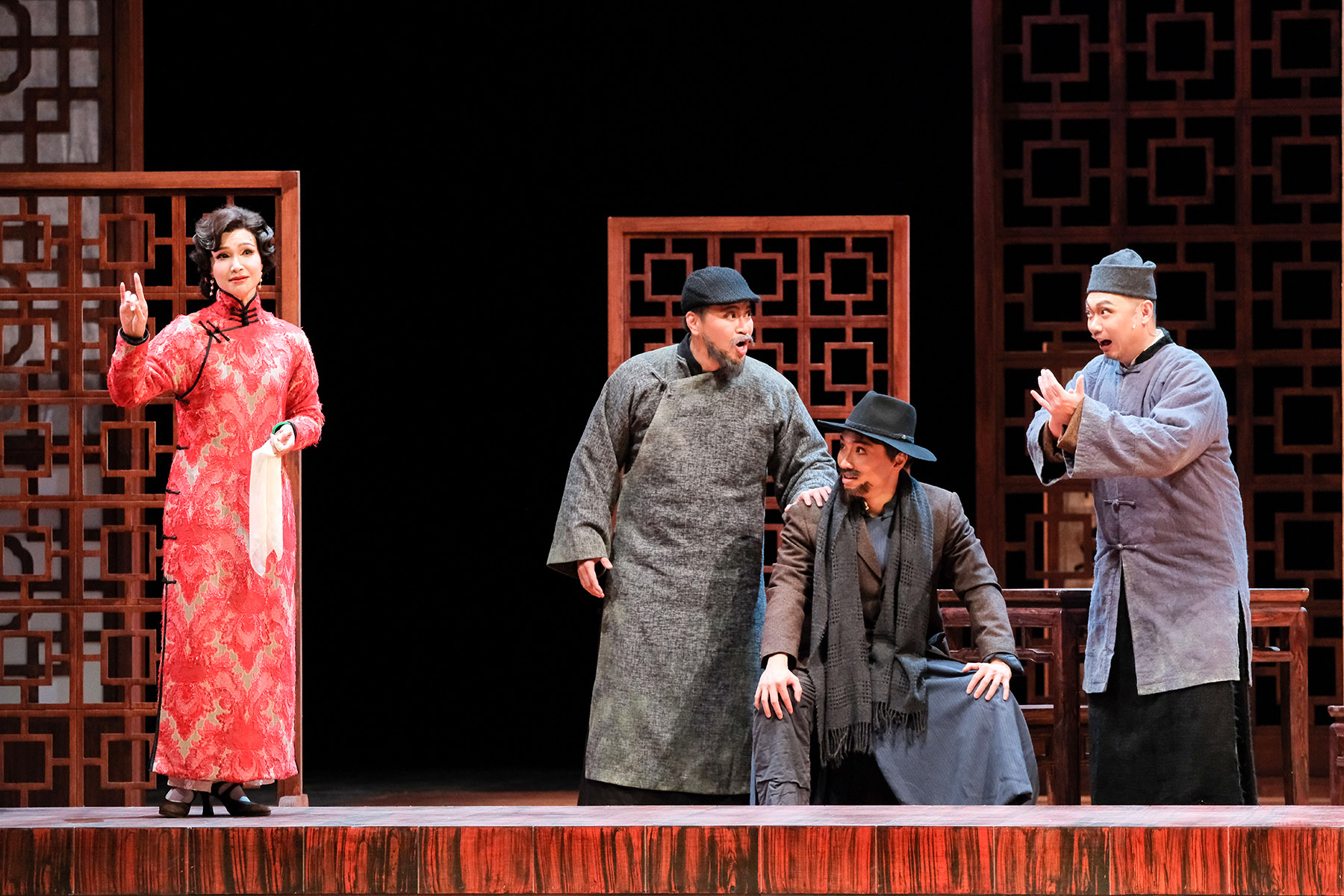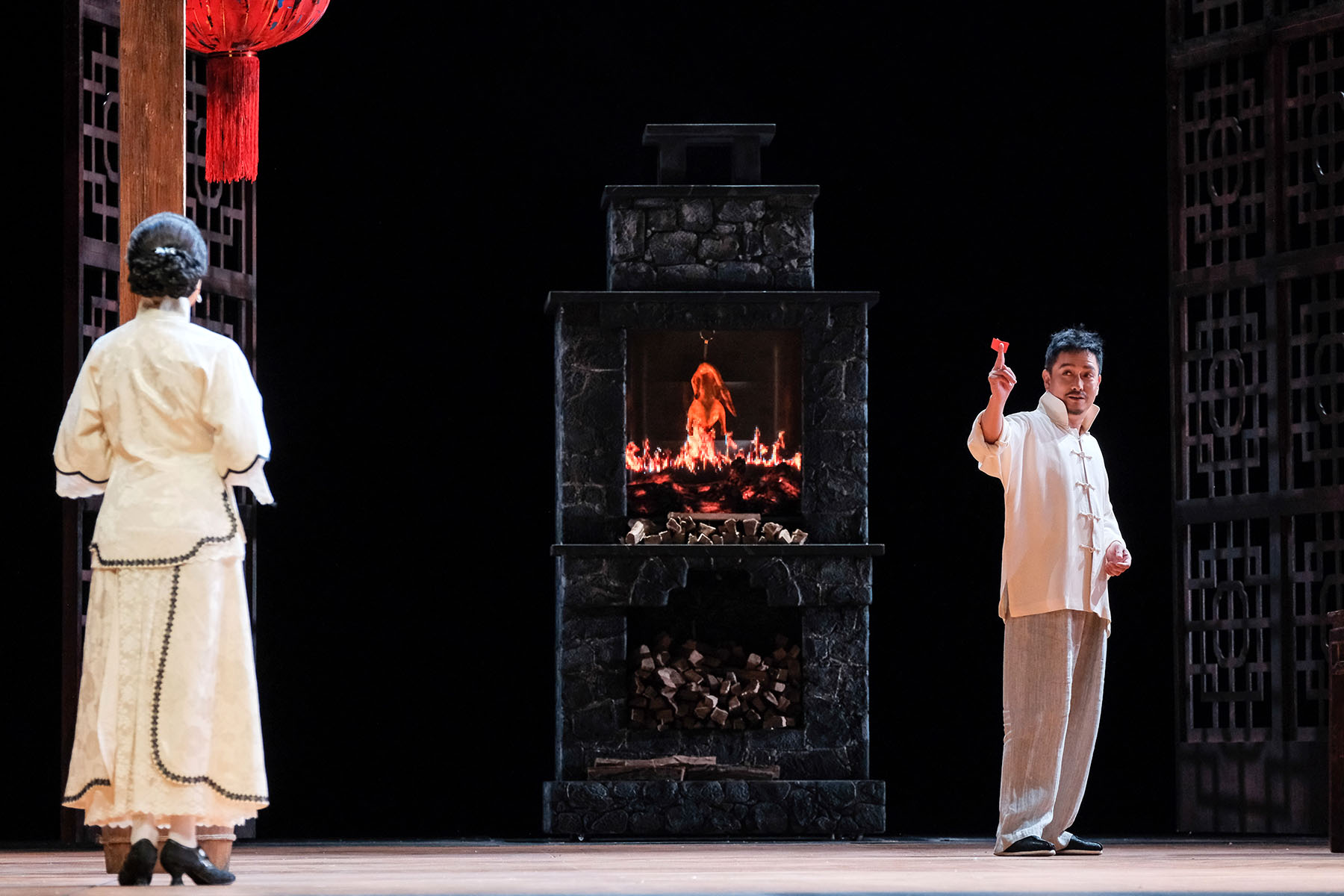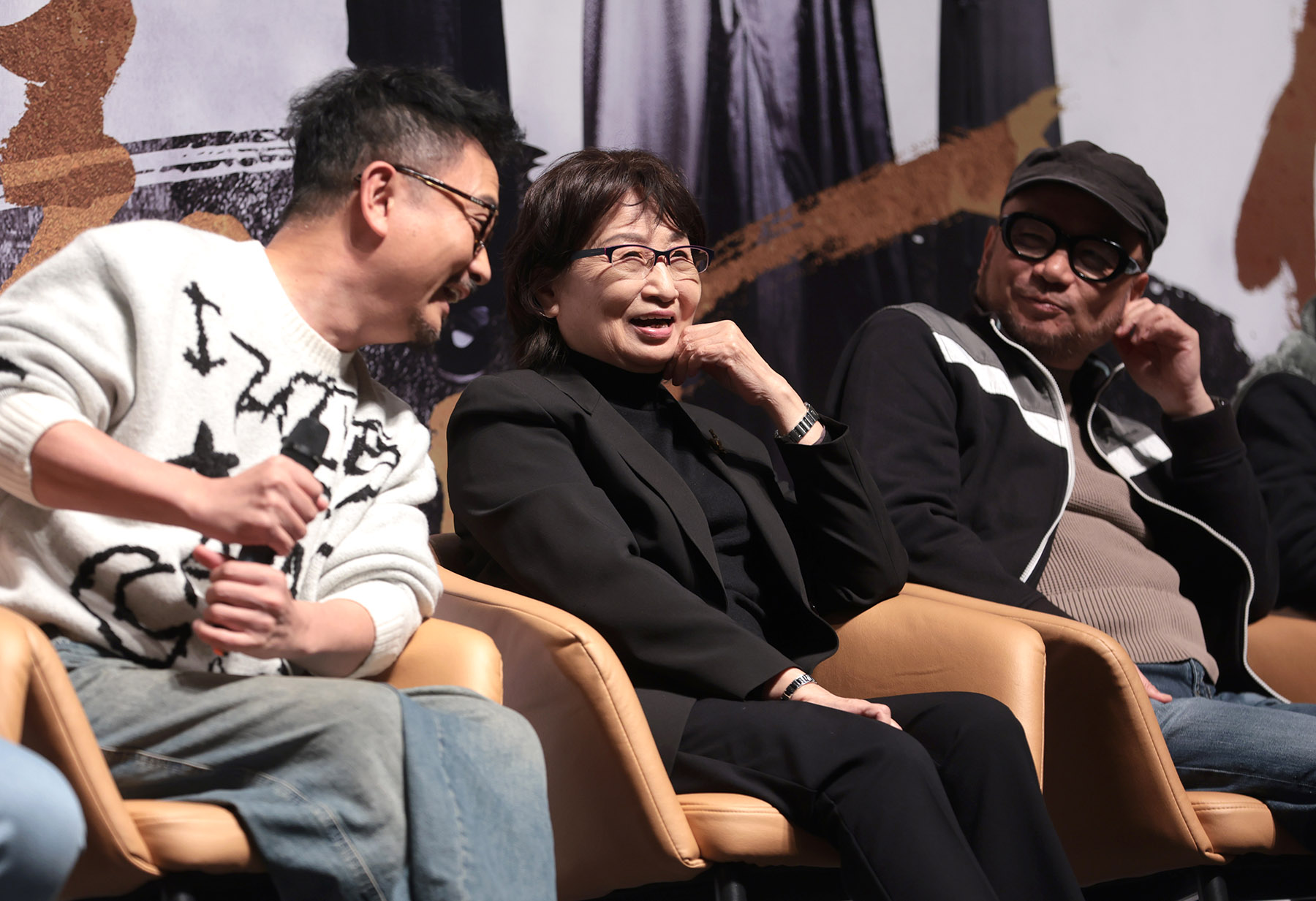Famous playwright scripts popular story inspired by Peking duck revolving around the relationship between food and life, which prompts a challenging Cantonese adaptation, Chen Nan reports.

On Dec 31, renowned playwright He Jiping visited Quanjude, a famous restaurant known for its traditional Peking duck nestled in the heart of Beijing's Hepingmen area. As she savored the meticulously carved bird, He shared the story behind one of her most celebrated plays, The Top Restaurant, which was inspired by the art of roasting duck. The visit not only brought her back to the origins of her inspiration but also allowed her to reflect on the deeper connections between food and life.
"I still recall the days I spent in this restaurant's kitchen, immersing myself in the preparation of the roast duck. I was the only woman and no one spoke to me in the beginning," recalls He, 74. "I observed the chefs, many of whom had shaved heads, as they expertly roasted ducks, sliced scallions, and prepared pancakes.
"I was fascinated by the precision and grace with which they moved and how their body language stayed in sync with the cooking rhythm, mirroring the beat of music."
READ MORE: Venues lay down welcome mat for audiences
To understand the craft more deeply, He enrolled in culinary classes to obtain a secondary chef's certificate.
This immersion into Beijing's food culture gave He a wealth of material for her script. After three years of research and rewrites, The Top Restaurant was born, depicting the rise and fall of a fictional restaurant called Fujude. The story revolves around the intense rivalry between two brothers and the ambitious Lu Mengshi, who attempts to revive their faltering family business when their father, the restaurant owner, retires due to bad health. The script reflects the artistry of Chinese cuisine while exploring the emotional and philosophical underpinnings of life and human relationships.

In 1988, The Top Restaurant premiered at the Beijing People's Art Theatre, an esteemed company with which He had collaborated as a playwright. The play quickly gained fame, becoming one of the theater's best-selling productions. Since then, it has been performed nearly 600 times, including tours to Japan, the United States and Europe, and was later adapted into a highly praised Chinese TV drama.
In 2022, the Hong Kong Repertory Theatre took on the iconic play, bringing with it the challenge of adapting it into Cantonese. This shift added another layer of complexity and charm to the stage play.
With director Roy Szeto and leading actor Tse Kwan Ho, the production toured across China, with recent performances at the Tianqiao Performing Arts Center in Beijing on the past Friday to Sunday and upcoming shows in Shanghai from Friday to Sunday. It will return to Hong Kong from Jan 18 to 26.
"I have worked with the Hong Kong Repertory Theatre for eight years. When they first adapted the play in 2022, it was a big success, enjoying a sold-out run," says He. "The play, originally shaped by the deep cultural underpinnings of Beijing, has been re-imagined with Hong Kong context, where the Cantonese dialect's rhythm, humor and subtleties offer a fresh take on themes like food, identity and social stratification."
"Food is particularly important to Chinese people, with a culture that spans over a thousand years. I enjoy eating and love cooking," adds He. "Eating is also an art. When the characters in the play talk about food, they reveal something about themselves."

In The Top Restaurant, food is not just sustenance — it is a means for the characters to express their innermost selves. For example, Xiu Dingxin, a central character, is portrayed as someone who deeply understands the art of food. Throughout his life, he studied cuisine and even delivers a monologue in the play about the relationship between eating, managing a family, governing a country, and being a virtuous person.
According to director Szeto, one of the biggest challenges for the Hong Kong theater in adapting this classic play was translating the cultural references, mannerisms and social codes of Beijing into a Hong Kong context.
"Restaurants in Beijing and Hong Kong are very different — from how the chefs work to how servers greet customers. I visited many roast duck restaurants in Beijing to understand their working dynamics and how they communicate with customers," says Szeto, 58, in Beijing on Dec 31.
He also notes that The Top Restaurant is not just a play about food; it's an immersive experience. The story is set in an exclusive dining establishment, where chefs, servers and diners serve up much more than gourmet dishes. The food is a metaphor for life — a plate of emotion, garnished with wit, humor, and existential musings. It's a rollercoaster of laughter, tears, and everything in between.

The Beijing People's Art Theatre version is performed in the Beijing dialect, which is an integral part of the play's identity. The dialect has a distinct rhythm, intonation and linguistic humor, all of which significantly contribute to the emotional depth and tone of the dialogue. The specific expressions, colloquialisms and cultural nuances embedded in the dialect have a vital role in the play's authenticity and impact.
"While Cantonese is a rich, expressive language in its own right, its vocabulary, intonation and idiomatic expressions differ from the Beijing dialect. Since our rendition is performed in Cantonese, the actors must adapt the language carefully to preserve the comedic timing, emotional depth and local relevance while ensuring that the essence of the original script remains intact," Szeto says.
ALSO READ: Play sparks debate on education
Since its founding in 1977, the Hong Kong Repertory Theatre has become the city's longest-standing and largest professional theater company.
A renowned actor and former principal performer at the Hong Kong theater, Tse plays the central role of Lu. To prepare for the role, Tse watched various versions of the play by the Beijing People's Art Theatre, including the 1988 premiere.
"Though I don't fully understand the Beijing dialect, I loved the actors' accents and the fast-paced dialogue, which sounded almost like singing," says Tse, 61. "I also love the script and its profound idea that life is like a complex meal, with a mix of bitter, sweet, salty, and sour experiences."
Contact the writer at chennan@chinadaily.com.cn


